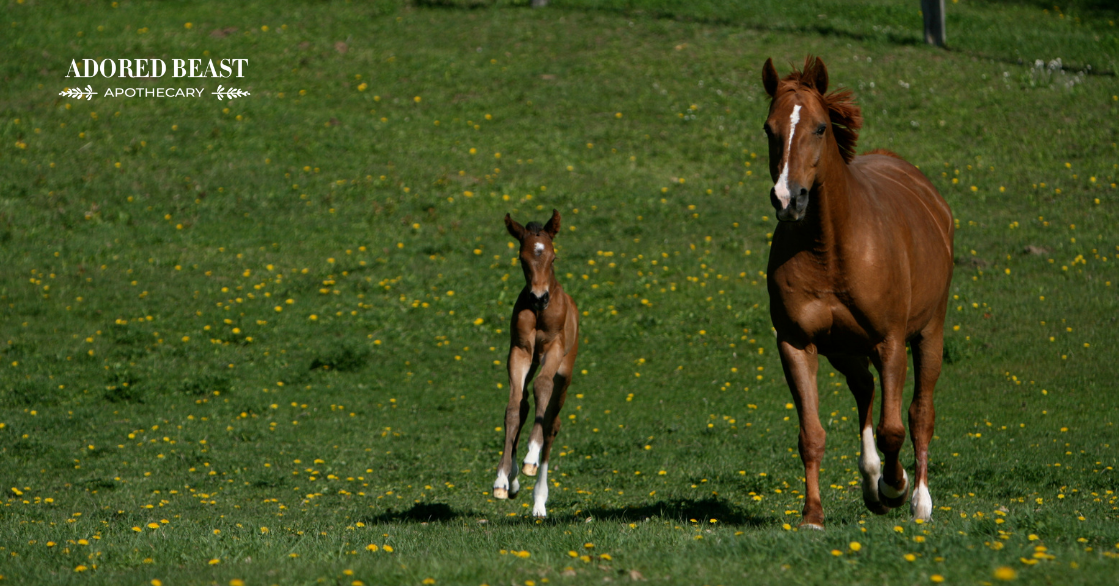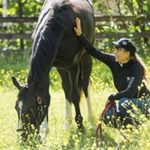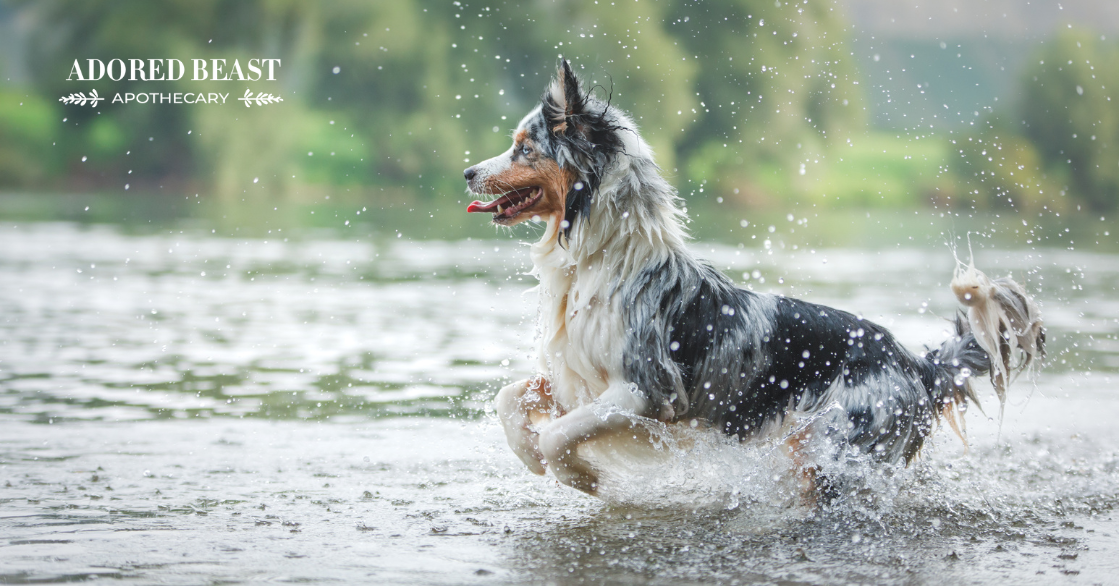You’ve probably heard of prebiotics by now. Like probiotics, they’re essential for optimal gut health – and thus overall health.
And you might also know they are good for your horse. But did you know that there are thousands of prebiotics for horses out there, or where to find them?
Today we’re exploring what prebiotics are, what they do, and how to decide which ones are right for your horse. Plus, we’ve got some great tips on how to start adding these to your horse’s diet!
What are Prebiotics for Horses?
Prebiotics for horses (or prebiotics in general) are non-digestible dietary fibres and nutrients that promote the nourishment and growth of healthy bacteria in the gut. Essentially it’s fibrous plant matter. And, a healthy equine diet is largely comprised of fibre from multiple plant sources including grasses, leaves, roots and tree bark.
The domestication of horses has limited their ability to naturally access these foods and now science is revealing that this is a detriment to them. Hay on its own is not enough. If you want your horse to have a healthy gut, they must have a diverse microbiome and that depends on diverse plant-based foods.
Scientists are beginning to understand the importance of a highly diverse microbial gut community in maintaining health. We now know that the more strains present, the healthier the host will be. (1) (2) (3) (4)
Research shows that healthy fibre and whole plant-based foods are important for maintaining microbiome diversity. (5) Prebiotics can help to modify and strengthen the microbiome to enhance immune modulation and even aid in the prevention of colic. (6) (7) (8) (9)
So, what are some of the prebiotic foods that you can use to ensure that your horse’s GI system stays in top form?
A variety of the herbs we use for human herbal medicine are part of the ancestral diet of horses. Horses are gifted herbalists that know how to forage based on the seasons and how they are feeling. Below are some of the top prebiotic herbs you can use to help promote gut health.
The Best Prebiotic Herbs for Horses
1. Larch Arabinogalactan – helps to increase intestinal bacteria by providing high amounts of unique dietary fibre. Post-biotics (metabolites) produced by larch contribute to immune health in humans and dogs. All wild herbivores and even carnivores include tree bark in their diet for this very purpose. For more info on larch, check out this post next!
2. Dandelion Root and Leaves – one of the most underrated plants on Earth. Naturally, it forms a large part of the equine diet. The roots contain resistant starch, a highly beneficial prebiotic fibre. The leaves and roots are packed with nutritional value (potassium, magnesium, vitamin C) and this plant also contributes to liver, kidney, and lymphatic optimization.
3. Marshmallow Root – well-known in human science for protection against gastric ulcers and reducing gut inflammation. It also contains high amounts of mucilage, a beneficial probiotic fibre that can help coat and soothe the digestive tract.
4. Licorice Root – another beneficial herb for the lining of the gut. It is ulcer-protective and a powerful digestive aid.
5. Chia Seed – high in protein, omega-3 fats, and mucilage to nourish the microbiome and protect the gut cells against excessive inflammation.
6. Turkey Tail Mushrooms – provide protection from pathogenic bacteria in the gut, have immune-protective properties, and provide unique medicinal nutrients to the microbiome (polysaccharides and triterpenes).
7. Raspberry Leaf – provides a wide variety of minerals including magnesium (often deficient in the equine diet) as well as vitamin C and prebiotic fibres.
8. Meadowsweet – contains prebiotic fibres, anti-inflammatory properties including salicylic acid, inhibits the growth of pathogens in the gut, and protects the mucosal membrane of the gut lining.
9. Psyllium Fibre – extremely high in mucilage and a great prebiotic tool for horses who suffer from fecal water syndrome.
Adding Herbs to Your Horse’s Diet
The more nutritive plant matter that you can add, the better. Rotational feeding of herbs is a wonderful and cost-effective way to increase prebiotics in the diet. They also provide antioxidants and phytonutrients, increasing your horse’s overall health. Most horses love the variety and you can change it up by following seasonal patterns in your horse management routine. For example, many horses are not on pasture during the winter months so adding more herbs during this time is beneficial.
Not only will this low-maintenance dietary addition increase the nutritional profile of your horse’s diet, it will also help you horse obtain nutrients from any food they consume. It’s a double whammy of benefits!
For best results, consult an equine nutritionist or herbalist to find out which herbs might be right for your horse.
Here are some general tips to follow for feeding herbs to your horse:
- Choose 3 herbs at a time and rotate to 3 new ones every 6-8 weeks.
- Some herbs may be more highly indicated for your horse’s situation than others. Make sure to get some guidance if you’re not sure where to start.
- Try new herbs at a dose of ¼ of the recommended amount and work up to the full amount slowly.
- Watch for how your horse responds to each herb physically and also whether or not they like the taste. If they don’t like it, it might not be the right one for them or they may need a slower and smaller introduction to get used to it.
- Observe manure regularly to see if there are changes as you start to add these prebiotics for horses to the diet.
References
- Journal of Industrial Microbiology & Technology: Microbial Diversity: the importance of exploration and conservation, 1997
- FEMS Microbiology & Ecology: Bacterial diversity within the equine large intestine as revealed by molecular analysis of clones 16S rRNA genes, 2013
- Journal of Equine Veterinary Science: Factors Influencing Equine Gut Microbiota: Current Knowledge, 2020
- Department of Animal Science, Southern Illinois University: Role of the gut microbiota in equine health and disease, 2016
- Scientific Reports: Evaluating the impact of domestication and captivity on the horse microbiome, 2017
- Plos One: Modification of the equine gastrointestinal microbiota, 2019
- Journal of Equine Veterinary Science: The impact of diet on the hindgut microbiome, 2017
- Journal of Animal Science: Horse Species Symposium: Can the microbiome of the horse be altered to improve digestion? 2016
- Animal Microbiome: The gut microbiome of horses: current research on equine eteral microbiota and future perspectives, 2019












